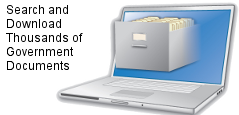TRM (VER. 2.0), NAVSEA TECHNICAL REVIEW MANUAL (TRM) (18-DEC-2009)
TRM (VER. 2.0), NAVSEA TECHNICAL REVIEW MANUAL (TRM) (18-DEC-2009)., Emphasizing review preparations and procedures based on the Naval Systems
Engineering (SE) Policy and Naval Systems Engineering Technical Review (SETR) Handbook, this TRM identifies technical requirements, planning responsibilities, recording requirements,
and roles for SETRs for programs within PEO IWS. This manual describes the overall PEO
IWS/SEA 05H SETR process as well as the objectives and activities (including entrance and exit
criteria) for each SETR. In so doing, this manual reflects policy that governs the SETR process
and provides guidance for the conduct of SETRs for development and verification of new
systems or system baseline upgrades.
In accordance with the Policy for SE in Department of Defense (DoD), each program is
required to submit a System Engineering Plan (SEP) for Milestone Decision Authority (MDA)
approval at each milestone review using the DoD Systems Engineering Plan Preparation Guide
including addendums. The SEP describes all technical aspects of an acquisition program and
describes the overall technical approach, SE processes, resources, key technical task, activities
and events along with the metrics and success criteria. SETRs to be conducted by each program
should be identified in the program’s SEP. The SEP must include a description of any programspecific
tailoring of the SETR and explain how the tailored SETR activities accomplish the
objectives of the overall SETR process. Non-acquisition programs within PEO IWS shall
prepare a modified SEP that includes as a minimum the Technical Review Planning portion of
the DoD Systems Engineering Plan Preparation Guide. The modified SEP shall have the
concurrence of the NAVSEA CHENG and be approved by the IWS Technical Director.
SETRs are independent reviews of programs for the benefit of the program manager.
Technical Interchange Meetings (TIMs) and program Integrated Product Team (IPT) meetings
are critical elements of the SETR process. The primary focus of each SETR assessment is on
technical issues; however, SETRs should never exclude cost and schedule considerations when
necessary to exercise sound judgment on technical risks and proposed solutions. In all cases, the
term “system” implies the total system: products (hardware and software), processes (facilities,
equipment, material, and procedures), and people (users, acquirers, developers, operators, and
maintainers).
SETRs are held to assist the Program Manager (PM) and his management team in
documenting technical requirements, synthesizing certifiable designs, assessing performance and
risk, ensuring programs are on track to achieve deployment with required capabilities. SETRs
are event-driven, and implement a technical assessment process that evaluates the maturing
program design/progress over the life of the program.
PEO IWS/SEA 05H SETRs will be conducted in accordance with Department of Defense
(DoD) and Department of the Navy (DON) policies and instructions. Emphasis is placed on
review preparations and procedures based on the Naval SE Policy (ref (i)) and Naval SETR
Handbook (ref (h)). Section 2.0 lists key references used in development of this manual. The
DoD acquisition life cycle, including SECNAV 2-pass/6-gate reviews, and SETR milestones are
shown in Figures (1) and (2) for a major program entering at either Milestone A or Milestone B.
These figures show where the various SETRs fit within the acquisition life cycle requirements of
higher authority.
TRM Rev. VER-2.0
|
Simple Search
 | ||||||||
